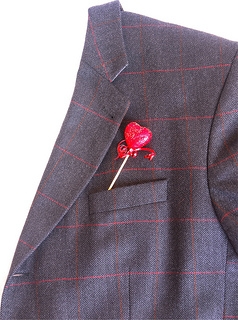The Transformation of Valentine's Day
February 13th, 2015

Did you know the actions leading to the beginnings of Valentine's Day were actually centered on the avoidance of war? A Catholic priest named Valentine defied the orders of the Emperor Claudius II and secretly married young men and their brides after the emperor had declared it illegal because only single, young men could be sent to war. Rather than lose potential soldiers to fight his war, Claudius attempted to hoard them by proclaiming marriage illegal.
Valentine continued to marry young couples anyway and, eventually, was put to death for it in 270 AD. Before his death, he sent a letter to a secret love and signed it “From your Valentine”. Nearly 1,800 years later, people are still signing letters and cards in this manner. This year, carry on the tradition started long ago, while adding your own twist. Here are a few suggestions.
Simple and Creative Valentine's Day Ideas
- Memorialize it with a Photo. Couples often have photos taken around Christmas, but Valentine's Day photos allow you to capitalize on romance. Famous couple Julia Child and her husband, Paul, had their picture taken together every Valentine's Day and included their sense of humor with silly props.
- Return to Your First Date Location. Even if your first date together was at a local hotdog stand, its sentimental value can make it a fun part of your Valentine's Day agenda. Be creative and make a treasure hunt with clues that lead your partner to the original date location, where you can express your love with flowers or a gift.
- “From Your Valentine” Messages. Deliver your message in a creative way to make this Valentine's Day stand out from the others. Bake your partner's favorite treat and write a message on it with a tube of icing, or draw a note on the steamed up mirror so it shows up when your partner takes a shower.
Although Valentine's Day is a day to celebrate love, it doesn't have to be a special day only for couples. If you're single, use this special day to shower yourself with love, because you're worth it! After all, the priest Valentine believed so strongly in the sanctity of love that he was willing to risk his life for it. Whether you're in a relationship or single, young or old, romantic or not, Valentine's Day is for you. Happy Valentine’s Day from the Dental office of Dr. Scott Nelson, Dr. Kevin Kooiker, Dr. Joe Williams, and Dr. Jon Hekman.

 Patient Login
Patient Login




 Back to top
Back to top Website Powered by Sesame 24-7™
Website Powered by Sesame 24-7™